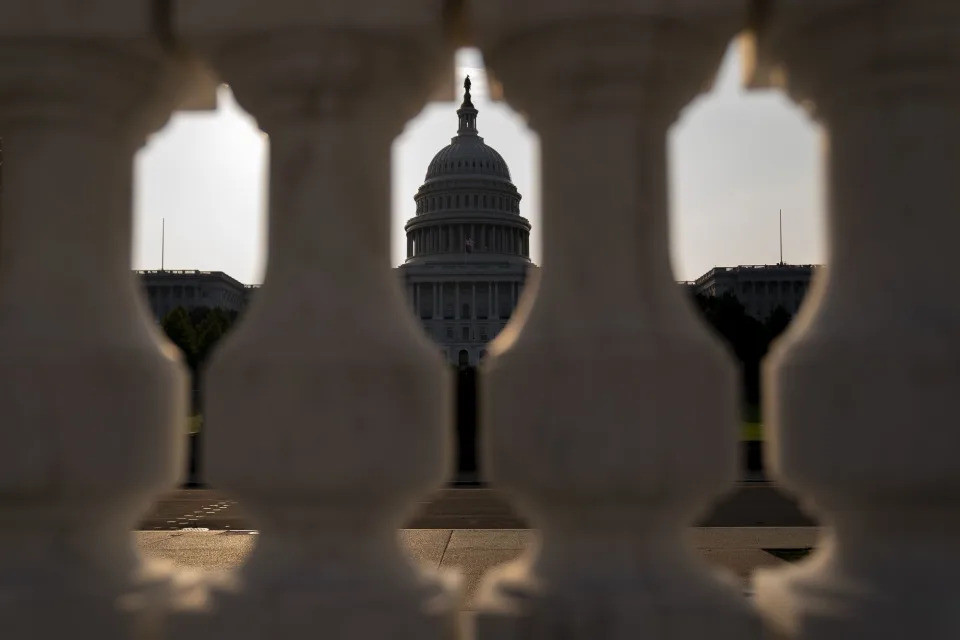Saijel Kishan
Tue, July 11, 2023

(Bloomberg) -- In the span of just a year, the acronym ESG has been catapulted from the fringes of Wall Street to the center of US political discord.
Utah Governor Spencer Cox was among the first Republican politicians to attack the investing strategy. He’s backed efforts by GOP officials, including his Florida counterpart Ron DeSantis, who has lambasted ESG as he vies for the White House. Cox also picked a state treasurer who recently referred to ESG as part of “Satan’s plan.”
But in an interview Saturday after an event in Gettysburg, Pennsylvania, that focused on ways to depolarize US politics, Cox struck a more conciliatory tone. While he remains opposed to environmental, social and governance financing principles, Cox said he’s spoken with groups in Utah interested in ESG topics such as solar energy and encouraged them to take their issues to the legislature where they can be debated and worked on outside of the finance industry.
“We can either get a change of heart from politicians who are exploiting ESG or citizens can insist on finding better politicians who are willing to listen to each other and strive to work together,” Cox said after his speech at the Gettysburg event organized by a group called Braver Angels and attended by supporters of Donald Trump and backers of the Black Lives Matters movement.
ESG investing has been swept into the nation’s culture wars by GOP officials, and congressional Republicans are planning a series of hearings this month that focus on the investing strategy. Cox’s comments come as a few others, mainly on the left, try to defuse the rhetoric over ESG.
Vermont State Treasurer Mike Pieciak, a Democrat who said he’s worked under a GOP governor and that his father is a Republican, encouraged attendees at a conference in Boston last month to break partisan divides through their relationships and conversations. “It’s important to break through the political walls,” he said at the event.
Pieciak said in an interview that he’s succeeded in convincing his father that ESG isn’t as nefarious as the way TV anchors at Fox News describe it.
“He’s more neutral about ESG now,” Pieciak said of his dad. “At the end of the day, we need to keep a more open mind and understand other people’s circumstances and motives and appreciate their viewpoints.”
At an ESG event in New York last month, Paul O’Brien, a trustee and member of the Republican-controlled state of Wyoming’s retirement system, concurred. He made clear, however, that his comments represent his personal views rather than those of the pension fund.
“Those of us out here in red states tend to stay in our bubbles, and I suspect some of you out there in blue-state America stay in your bubbles as well,” O’Brien said. “I would encourage you to come out here and talk to people and get a complete view.”
After the event, he said the anti-ESG backlash has in fact been a good thing because it will lead to more constructive debates. He said ESG proponents need to be more cognizant of how the switch to cleaner energy will impact local economies that have traditionally relied on fossil fuels.
“When you make a simple net zero statement, it doesn’t sound very good to the people that are producing fossil fuels because it looks like they’re being zeroed out,” he said.
Since the ESG criticisms started brewing last year, former Harvard University professor Bob Eccles, a Democrat, has been meeting with Republicans to better explain what the investing strategy is. At the Boston conference, he urged the overwhelmingly Democrat audience to reach across the political aisle.
“Start making friends with Republicans,” said Eccles, who’s now a visiting professor at Oxford University’s Said Business School.
After the event, Eccles said many Republicans, including politicians, executives and non-governmental organizations, recognize the severity of climate change and have different strategies and policies to address it.
“Liberals need to recognize this and accept the fact that they don’t necessarily have all the right answers,” Eccles said. “They need to start talking to conservatives with an open mind.”
Republicans have attacked ESG, saying it’s a way to channel money for liberal goals such as addressing climate change and workforce diversity. They’ve started probes of Wall Street’s ESG practices and introduced anti-ESG bills in their states.
Cox said many conversations about ESG are happening in Utah and they’ve resulted in anti-ESG laws being passed that were dramatically different to what was originally proposed. He said the changes helped make room for productive discussions.
“These individual ESG issues deserve to have their day in each legislative body to be debated and then to come to a conclusion,” Cox said.
Most Read from Bloomberg Businessweek
No comments:
Post a Comment